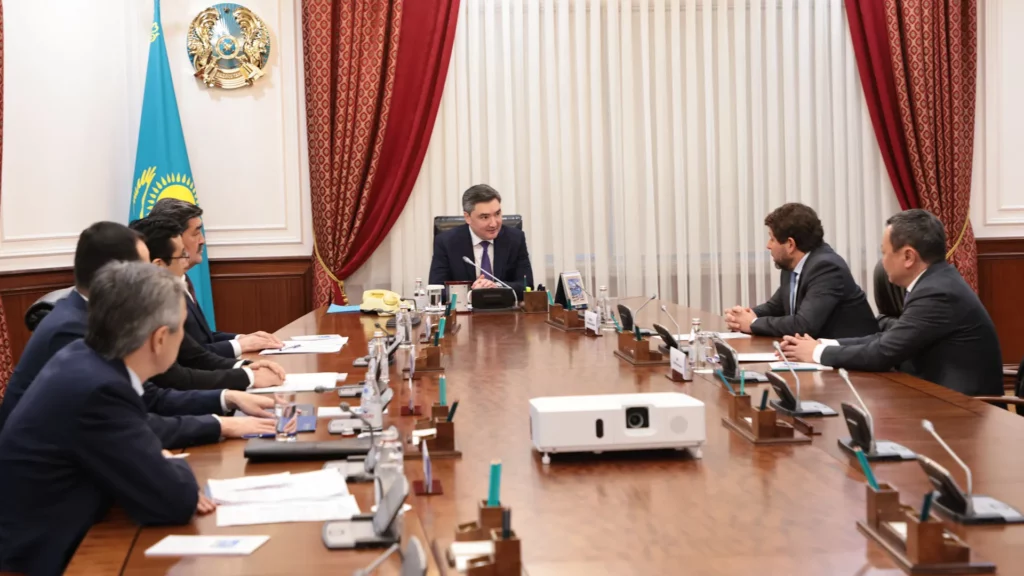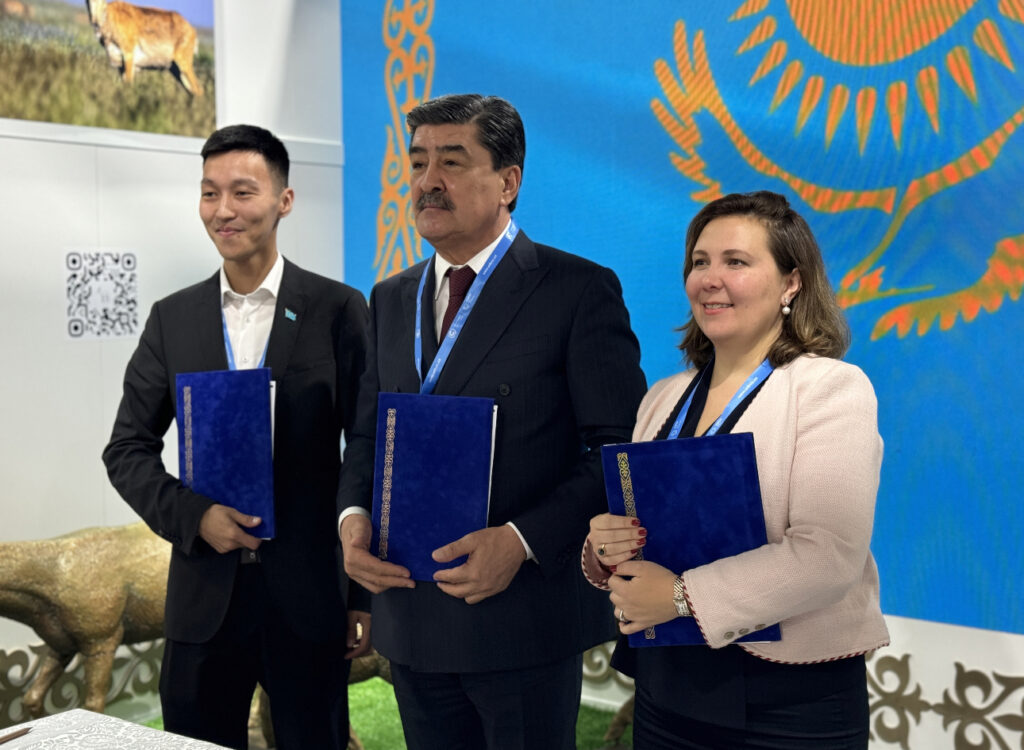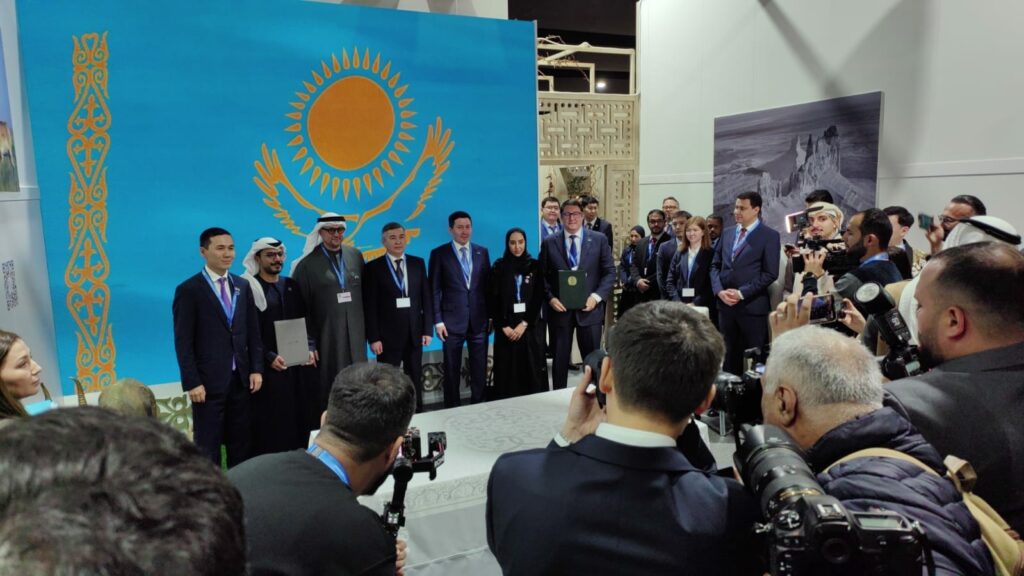Kazakhstan this year headed the International Fund for Saving the Aral Sea. Our country’s chairmanship will last three years, and Kassym-Jomart Tokayev was elected president of the Fund for the same period. What initiatives and projects are planned to be implemented during this time, said the head of the water cooperation department for Central Asia of the department of international cooperation of the Ministry of Water Resources and Irrigation, Erbolat Pernekhan, in an interview with a Kazinform correspondent.
First of all, the speaker recalled that on January 11, 2024, in agreement with the Central Asian countries, the decision of the President of the Republic of Kazakhstan approved the candidacy of Askhat Orazbay for the post of Chairman of the IFAS Executive Committee. Also in January, appropriate procedures were carried out to organize the activities of the office of the IFAS Executive Committee in Astana. The government provided office and apartments for representatives from Kyrgyzstan, Tajikistan, Turkmenistan and Uzbekistan.
Today, according to Yerbolat Pernehan, the Foundation continues its active work on interaction with international organizations, as well as active promotion on world platforms.
– Thus, on May 22, 2024 in Indonesia, within the framework of the 10th World Water Forum, the IFAS Executive Committee held a subregional session on the topic “Transboundary water cooperation in the Aral Sea basin for a better future.” The session was attended by heads of water management departments of Kazakhstan, Tajikistan, Turkmenistan, and Uzbekistan. On June 12, 2024 in Tajikistan, the IFAS Executive Committee together with the World Bank within the framework of the 3rd High-Level International Conference on the International Decade of Action “Water for Sustainable Development” 2018-2028. held a round table of Central Asian water ministers on the topic “Achieving greater efficiency of water use in the Central Asian region,” informed E. Pernehan.
He noted that the goal of Kazakhstan’s chairmanship in IFAS is to further develop constructive cooperation on issues of integrated use of water resources, ecology and environmentally-oriented SDGs, socio-economic aspects and the “green” economy of Central Asian countries.
According to E. Pernehan, to achieve the goal it is necessary:
– continuation of work to improve the organizational structure and legal framework of IFAS based on available materials;
– implementation of the Action Program to provide assistance to the countries of the Aral Sea basin for the period 2020-2030. and its systematic monitoring;
– creation of a long-term and sustainable regional cooperation mechanism for the effective use of water and energy resources in Central Asia, taking into account the interests of all countries in the region, as well as within the framework of generally accepted international environmental conventions and action plans.
As part of its chairmanship, this year Kazakhstan plans to begin the second phase of a project to preserve the Northern Aral Sea, implemented together with the World Bank.
– The RRSSAM-2 project was a continuation of the first phase of the RRSSAM-1 project and, taking into account the construction of the Koksarai counter-regulator and those previously built and restored within the first phase of the project, it was intended to ensure effective management of water resources in the Kazakhstan part of the Syrdarya River basin. The development of a feasibility study is being completed. The project provides for an increase in the volume of water by 5 km3, 1000 km2 of the bottom will be covered with water, which will reduce the spread of salt and dust storms, and the delta lakes (Kamyshlybat and Akshatau lake systems) will be stabilized,” said Erbolat Pernekhan.
Also today, the Ministry of Water is developing proposals for Central Asian countries on a mechanism for water and energy cooperation. When forming the mechanism, all the interests of the countries of the Aral Sea basin are taken into account: environmental, irrigation, energy and food, as well as climate change in the region.
As soon as the project is developed, a presentation for the Central Asian countries and further discussion at the intergovernmental expert level are planned.
E. Pernehan also spoke about the current situation in the Aral Sea basin.
– During the autumn-winter period (2023-2024), 1.3 km3 of water was supplied to the Northern Aral Sea. As of June 15, 2024, the filling of the Northern Aral Sea is 21.4 km3, which is 1.2 km3 more than last year’s figure. In general, during the irrigation period (April 1 – October 1, 2024), it is planned to supply 997 million m3 of water, he said.



